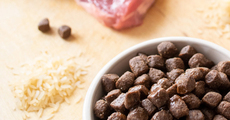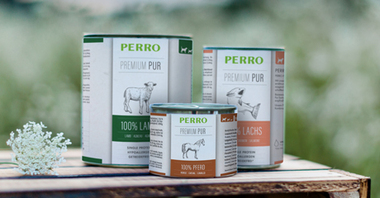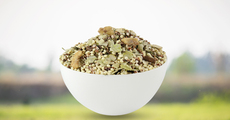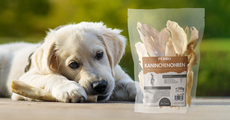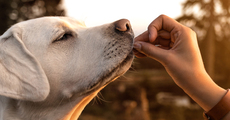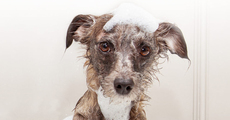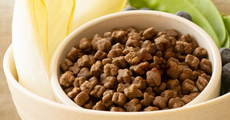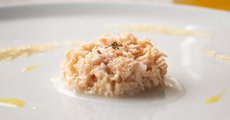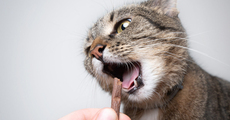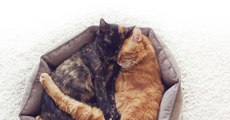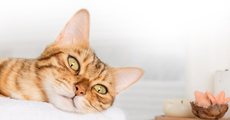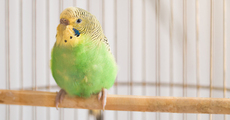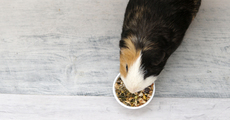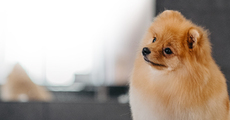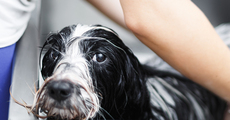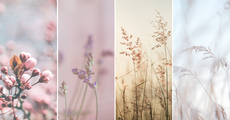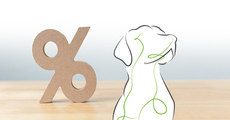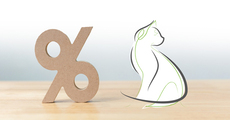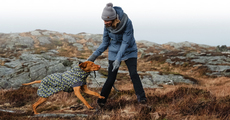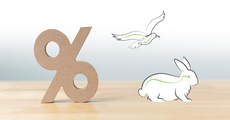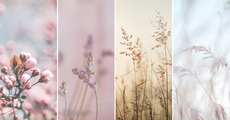The right diet for rabbits and hares
What are rabbits and hares actually allowed to eat? We explain what is important when feeding the little hobbles.
Plenty of roughage - hay as the basis
Rabbits are pure herbivores. Their entire organism is specialised in metabolising plant food , especially grasses, herbs and leafy plants. This means that the basis of proper rabbit feeding in human care is high-quality roughage, i.e. hay, grasses, herbs and straw .
The high crude fibre content in roughage is important for a functioning digestive mechanism. Rabbits and hares have a so-called stuffed stomach that is weakly muscled. The stomach cannot transport the food mash on its own and is dependent on the food that comes after it to take over this work .
Therefore, roughage must be available to the animal around the clock. Rabbits eat around 60 - 80 small portions throughout the day
. This is essential for the gastrointestinal tract so that it is evenly loaded. A
rabbit that takes too long a break from eating will quickly develop digestive problems. Roughage should make up about 80% of the daily ration, the remaining 20% are vegetables, fruit and herbs.
Which vegetables and fruits are allowed to rabbits?
Vegetables and fruitwith a high water content are suitable for rabbits. These include, for example: broccoli, spinach, cabbage, carrots, kohlrabi leaves, red and yellow peppers, chicory, fennel, celery, various kitchen herbs and fruit such as apples, pears and grapes.
Important: Vegetables should be given daily, fruit can be given now and then as a small snack in between.
Nibbles for tooth abrasion
Another component of rabbit food is nibbles and wood. Rabbit teeth grow continuously and more than one centimetre per month. If the teeth become too long, the animal can no longer eat which in the worst case can lead to death, but definitely to severe deficiency symptoms. Therefore they need to grind up fibre- and structure-rich food to wear down their teeth. The best nibbles for rabbits are hazelnut twigs and branches of pome fruit trees. But lime, hornbeam, maple or willow are also suitable.
Are rabbits allowed to eat cereals?
Opinions differ on the subject of grain for rabbits and hares. Many products with a relatively high grain content for rabbits are sold in the trade.
. Critical voices argue that grain does not occur in the
natural diet of rabbits and that, among other things, diarrhoeal diseases are triggered.
Petra Wolf, Professor of Nutritional Physiology and Animal Nutrition, Rostock, comments:
"On the one hand, for some time now, there have been repeated calls for grain-free feeding, among other things, to prevent diarrhoeal diseases, without any scientifically substantiated data being available for this. On the other hand, dwarf rabbits do not show any changes in hard faeces when offered rations with an increasing proportion of cereals (starchy!), i.e. the often mentioned diarrhoeal diseases could not be observed."
The literature describes "a great preference of wild rabbits for ripe cereals" (Lincke, 1943 in: Das Kaninchen - Nahrung und Gesundheit). Especially oats are eaten with pleasure by the wild animals. Basically, it can be said that whether cereals are on the rabbit's menu or not depends on their availability in the respective habitat.
To summarise: the majority of the feed ration of rabbits and hares should definitely consist of roughage . Grains have a faster saturation effect due to their higher starch content. This results in longer food pauses which can disturb the digestion process (keyword: stuffed stomach). In the right dosage, however, grain is a high-quality food that is a welcome change in the diet.
Use treats sparingly
Of course rabbits and hares are happy to receive treats. That is perfectly OK in between, but the following applies here: do not overdo it. Especially if the snacks contain sugar, molasses or similar, they must be used sparingly .



